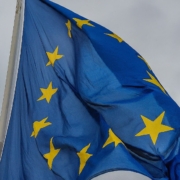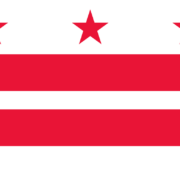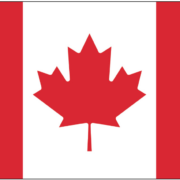June 2026 Coming Fast – 12 Months Out from the EU Pay Transparency Directive
Promoting Fair Pay: The EU Pay Transparency Directive
Introduction
The European Union’s Pay Transparency Directive, adopted on May 10, 2023, marks a significant step towards ensuring equal pay for equal work across member states. This directive aims to combat pay discrimination and close the gender pay gap by promoting transparency in wage practices. As businesses adapt to these new regulations, understanding the implications of the EU Pay Transparency Directive and how to comply is crucial.
Understanding the EU Pay Transparency Directive
The EU Pay Transparency Directive is designed to strengthen the application of the principle of equal pay for equal work or work of equal value between men and women. Key provisions of the directive include:
- Salary Transparency: Employers must inform job seekers about the starting salary or pay range of advertised positions, whether in the vacancy notice or ahead of the interview.
- Prohibition of Pay History Questions: Employers are prevented from asking candidates about their pay history.
- Right to Information: Workers are entitled to ask their employers for information about average pay levels, broken down by sex, for categories of employees doing the same work or work of equal value.
- Reporting Obligations: Companies with more than 250 employees must report annually on the gender pay gap in their organization to the relevant national authority. Smaller organizations must report every three years.
- Action Plans: If the report reveals a pay gap of more than 5% that cannot be justified by objective, gender-neutral criteria, companies must take action in the form of a joint pay assessment carried out in cooperation with workers’ representatives.
- Compensation and Penalties: The directive includes provisions for compensation for victims of pay discrimination and penalties, including fines, for employers who break the rules.
Recent Developments
The EU Pay Transparency Directive officially entered into force on June 7, 2023. Member states have until June 7, 2026, to incorporate the directive into their national laws. As of now, no specific companies have been publicly noted as out of compliance or fined under the directive, as the full implementation and enforcement are still in progress.
Employment and the Role of Third-Party Audits
Third-party audits are critical for ensuring compliance with the EU Pay Transparency Directive, particularly in the employment sector. These audits provide an independent assessment of wage practices, helping to identify and address pay disparities. Key benefits of third-party audits include:
- Ensuring Fairness and Non-Discrimination: Audits help verify that pay practices are fair and non-discriminatory, aligning with the directive’s principles of equal pay for equal work (Art. 4).
- Transparency and Accountability: Independent audits ensure that wage practices are transparent and accountable, fostering trust among employees and compliance with the directive’s requirements (Art. 8).
- Continuous Monitoring: Regular audits support continuous monitoring of pay practices, ensuring ongoing compliance and addressing any emerging disparities (Art. 9).
- Legal Compliance: Audits help generate and validate the technical documentation required by the directive, ensuring that all necessary information is accurately recorded and maintained (Art. 11).
How Canopy Can Help
Canopy offers comprehensive solutions to help businesses comply with the EU Pay Transparency Directive and promote fair pay practices:
- Compliance Framework: Canopy provides a robust framework to help businesses develop and implement policies that comply with the directive. This includes guidelines for regular reviews and updates to ensure ongoing compliance.
- Wage Analysis Tools: Canopy offers tools to analyze wage data and identify potential discrepancies. These tools help businesses ensure that their pay practices are fair and aligned with the directive’s requirements.
- Third-Party Audits: Canopy facilitates third-party audits to provide an independent assessment of wage practices. These audits help verify compliance with the directive, ensuring fairness, transparency, and accountability.
- Training Programs: Canopy provides training programs to educate employees and managers about the provisions of the directive and the importance of wage transparency. This helps create a culture of fairness and compliance within the organization.
- Continuous Monitoring: Canopy’s solutions include continuous monitoring of pay practices to detect and address any emerging discrepancies. This proactive approach ensures that businesses remain compliant with the directive and other evolving regulations.
Conclusion
The EU Pay Transparency Directive represents a significant step towards achieving pay equity in the workplace. As businesses strive to comply with these regulations, Canopy’s comprehensive solutions provide the tools and support needed to ensure fair and transparent pay practices. By partnering with Canopy, businesses can not only comply with the law but also foster a culture of equity and fairness.
REFERENCES
: EU Pay Transparency Directive: What You Need to Know : Pay transparency in the EU – Consilium : EU Pay Transparency Directive | Deloitte Ireland







Leave a Reply
Want to join the discussion?Feel free to contribute!